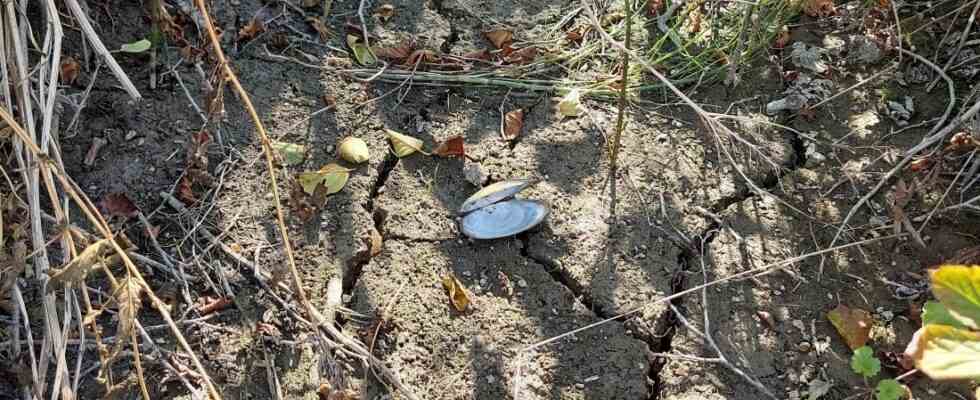Günter Schön can’t even remember how often he stood in the mud in rubber boots this summer. He saved more than 600 mussels, large and small pond mussels as well as river mussels, which are strictly protected and of which there are hardly any left in the district anyway. One of the places where it was found was the Ilm above Pipinsried: “I can’t let the mussels die,” says the conservationist. He discovered about 200 mussels lying in the mud that had been cracked open by crows and above all brown rats. Fish and mussels have also died in the Rettenbach, where the situation is not much better.
Now Günter Schön is going on vacation for a few days – “at an altitude of two thousand meters, where there are no beavers and mussels”. He laughs. “No, already to the water,” says the nature conservation warden, beaver and mussel advisor in the Dachau district. Waters and their wildlife are the passion of the expert from Markt Indersdorf – without his voluntary commitment or that of his colleague, the mussel supervisor Michael Keller from Oberzeitlbach, nature conservation in the Dachau region would not be so good. But at the end of this hot summer, Günter Schön doesn’t want to talk about “good”. “This year is a disaster,” he says. Streams have never dried up in the district – not even in the past few years, when there have been persistent droughts and droughts as a result of climate change. He is serious: the drought is by no means over yet. Schön is still in the middle of the fight to save the fish and mussels in the Rettenbach and the Ilm. And that won’t let go of him on vacation either, no matter where he goes.
Climate change is approaching
The effects of climate change are becoming more and more painfully noticeable in the district every year. The great environmental catastrophes are still far away. Recent example: The floods, landslides and flash floods in Pakistan, affecting at least 33 million people; many lost their lives in the floods. Or the flood of the century in July 2021: More than 180 people lost their lives in the worst flood disaster in Germany’s history, and more than 800 were seriously injured. The property damage was in the billions of euros. The residents of the Dachau region do not (yet) have to fear this – but the consequences of climate change are moving closer and closer to their immediate environment.
The Ilm is a valuable river mussel body of water, but has dried up quite a bit above Pipinsried.
(Photo: Niels P. Jørgensen)
In mid-August, the public was startled: Sections of the Rettenbach in Giebing in the municipality of Vierkirchen and the Ilm – a valuable river mussel water – above Pipinsried had dried up. Many animals have died. “The situation is very serious,” said Bernhard Gum, fishing advisor for the district of Upper Bavaria. Seriously because the extinction of species due to ongoing global warming must not be forgotten, because it has a devastating effect on the ecological cycle – also in the district. Development depends on the weather over the next two weeks, Gum said.
Brown rats eat the mussels
The fishing advisor and mussel advisor Schön already suspected based on their experience: It won’t work anymore. “A little something is happening again” in the Ilm, says Günter Schön. But it’s still a thin trickle, not enough water for the fish and mussels. According to Schön, the fire brigade channeled water into the Ilm six to seven times, but that didn’t make it a flowing body of water again. 300 to 400 minnows were rescued, some released into other streams or taken into the “fish tank”. But, so Schön, that doesn’t go for weeks, the fish would have to be released back into the wild.
The fundamental problem: The mussels need fish as hosts for their reproduction. If the ecological cycle is interrupted, this has far-reaching consequences for the conservation of animal species that are already threatened. “The Ilm,” says Schön, “is a catastrophe. The child fell into the well.” But Schön fights on, together with the experts from the State Office for Environmental Protection, for which he works as a mussel advisor, and the fisheries specialist advice for the district of Upper Bavaria and the lower nature conservation authority in the district office of Dachau. Giving up is out of the question for Günter Schön. There is too much at stake for that.

